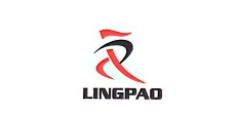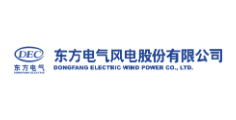标准号:SAE J 2711-2002
中文标准名称:混合电动车辆和常规重型车辆的排放和燃料节约的测量的推荐实施规程
英文标准名称:Recommended Practice for Measuring Fuel Economy and Emissions of Hybrid-Electric and Conventional Heavy-Duty Vehicles
标准类型:T04
发布日期:2002/9/1 12:00:00
实施日期:1999/12/31 12:00:00
中国标准分类号:T04
国际标准分类号:13.040.50
引用标准:ASTM D 240-2002;ASTM D 4809-2000;SAE J 1634-1999;SAE J 1711-1999;SAE J 2263-1996;SAE J 2264-1995;2000-01-2011;2000-01-2955
适用范围:This SAE Recommended Practice was established to provide an accurate, uniform and reproducible procedure for simulating use of heavy-duty hybrid- electric vehicles (HEVs) and conventional vehicles on dynamometers for the purpose of measuring emissions and fuel economy. Although the recommended practice can be applied using any driving cycle, the practice recommends three cycles: the Manhattan cycle, representing low-speed transit bus operation; the Orange County Transit Cycle, representing intermediate-speed bus operation; and the Urban Dynamometer Driving Schedule (UDDS) cycle representing high-speed operation for buses and tractor-trailers. This document does not specify which emissions constituents to measure (e.g., HC, CO, NOx, PM, CO 2 ), as that decision will depend on the objectives of the tester. While the recommended practice was developed specifically to address the issue of measuring fuel economy and emissions for hybrid-electric heavy-duty vehicles on a chassis dynamometer, the document can also be applied to chassis testing of other heavy- duty vehicles. This document builds upon SAE J1711, the light-duty HEV chassis recommended practice. As in SAE J1711, this document defines a hybrid vehicle as having both a rechargeable energy storage system (RESS) capable of releasing and capturing energy and an energy-generating device that converts consumable fuels into propulsion energy. RESS specifically included in the recommended practice are batteries, capacitors and flywheels, although other RESS can be evaluated utilizing the guidelines provided in the document. Further, the recommended practice provides a detailed description of state of charge (SOC) correction for charge-sustaining HEVs. This document also has a section which provides recommendations for calculating fuel economy and emissions for charge-depleting hybrid-electric vehicles. It should be noted that most heavy-duty vehicles addressed in this document would be powered by engines that are certified separately for emissions. The engine certification procedure appears in the Code of Federal Regulations, Title 40.
SAE J 2711-2002 混合电动车辆和常规重型车辆的排放和燃料节约的测量的推荐实施规程
百检网 2021-07-14
百检能给您带来哪些改变?
1、检测行业全覆盖,满足不同的检测;
2、实验室全覆盖,就近分配本地化检测;
3、工程师一对一服务,让检测更精准;
4、免费初检,初检不收取检测费用;
5、自助下单 快递免费上门取样;
6、周期短,费用低,服务周到;
7、拥有CMA、CNAS、CAL等权威资质;
8、检测报告权威有效、中国通用;
客户案例展示
版权与免责声明
①本网注名来源于“互联网”的所有作品,版权归原作者或者来源机构所有,如果有涉及作品内容、版权等问题,请在作品发表之日起一个月内与本网联系,联系邮箱service@baijiantest.com,否则视为默认百检网有权进行转载。
②本网注名来源于“百检网”的所有作品,版权归百检网所有,未经本网授权不得转载、摘编或利用其它方式使用。想要转载本网作品,请联系:service@baijiantest.com。已获本网授权的作品,应在授权范围内使用,并注明"来源:百检网"。违者本网将追究相关法律责任。
③本网所载作品仅代表作者独立观点,不代表百检立场,用户需作出独立判断,如有异议或投诉,请联系service@baijiantest.com







